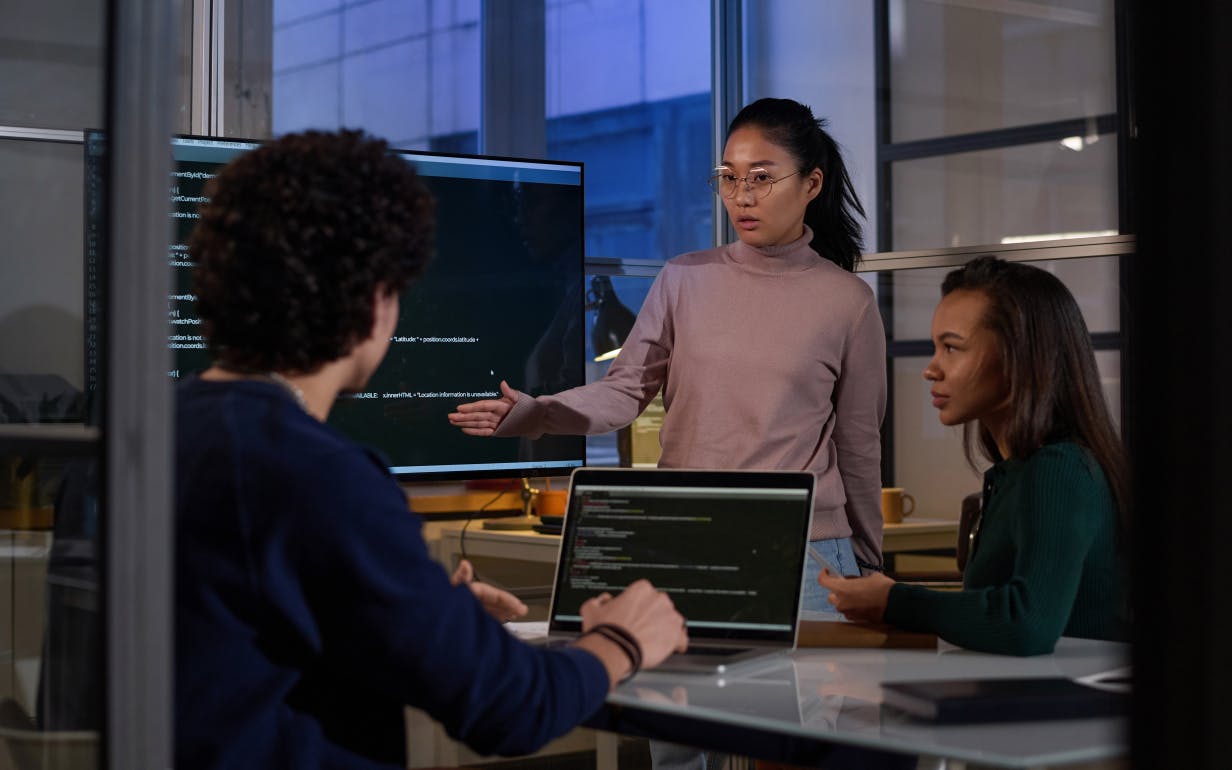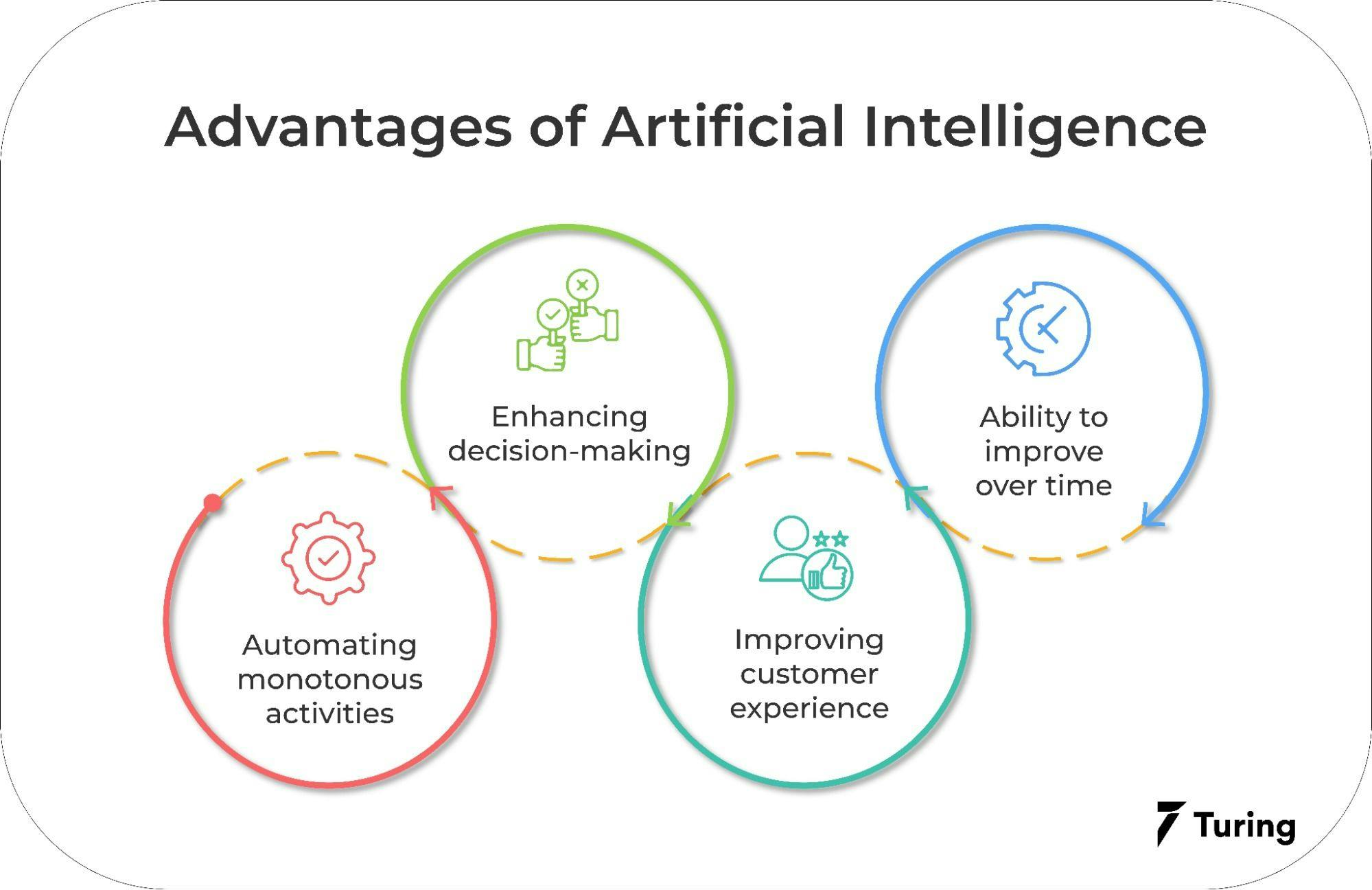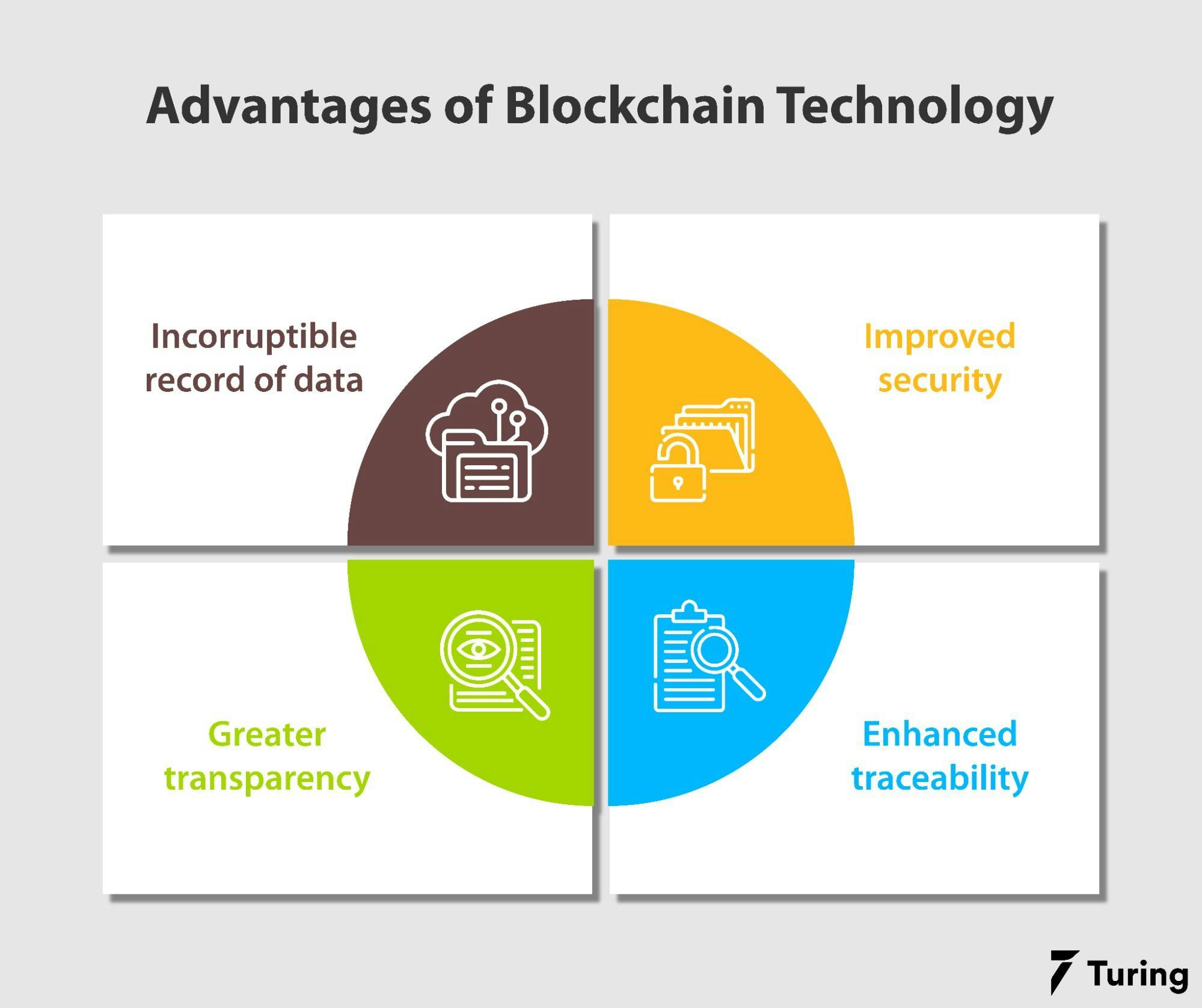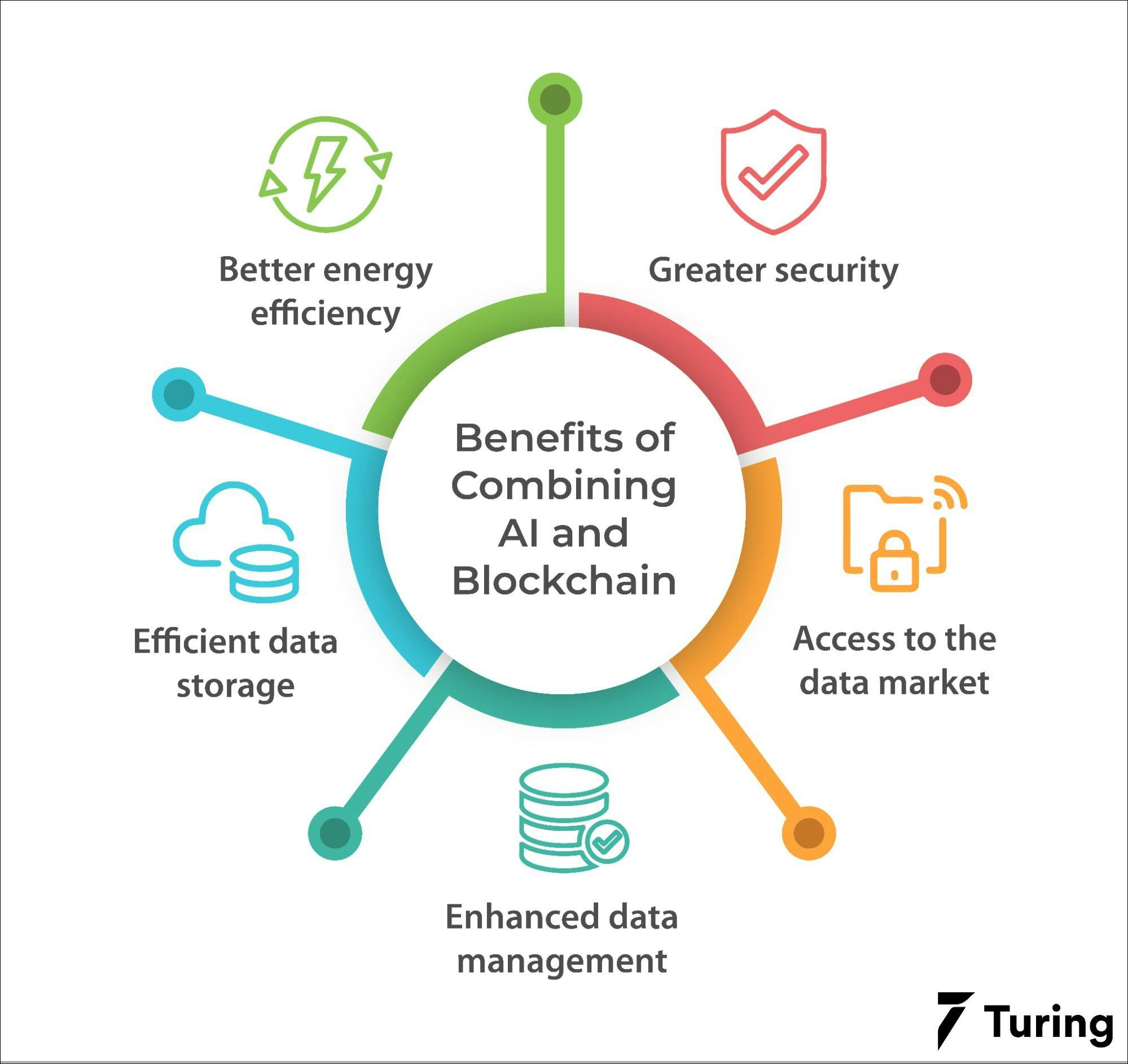Does Artificial Intelligence Impact Blockchain Technology?
•7 min read
- Other

In today's world of technology, there are two significant trends that can't be ignored. The first is the resurgence of artificial intelligence (AI) techniques, such as breakthroughs in computer vision, natural language processing (NLP) and synthesis, machine translation, and big dataset processing and analytics. The second is the introduction of powerful cryptographic tools and distributed ledgers, generally referred to as blockchain or distributed ledger technology.
This article will explore these two disruptive technologies and explain the use of and benefits of AI in blockchain.
Data growth and the resurgence of artificial intelligence
The ever-increasing availability of analyzable data and low-cost computer capacity for its analysis is aiding the rebirth of AI. This explosion has made the commercial sector realize that you can teach a computer to perform complex tasks just as well as, or potentially better than, human experts. Brands like Google, Amazon, Facebook, Alibaba, and others with significant resources have already adopted AI to boost their efficiency and revenues.
Moving swiftly alongside AI’s resurgence is the newer blockchain technology, made popular by Bitcoin. It is now being lauded as the future facilitator of profoundly altered societal trust, identification, and economic transaction systems.
How artificial intelligence works
Artificial intelligence is the use of computers to do tasks that would normally need human intelligence. For example, data may be analyzed, classified, and predictions made using AI algorithms. In addition, unlike traditional software, AI models can improve (learn) over time when new data is provided to them.

AI uses computers, data, and occasionally, robots, to simulate the human mind's problem-solving and decision-making skills. It includes machine learning (ML) and deep learning (DL) subfields that make use of AI algorithms trained on available data to deliver predictions or classifications and improve over time.
AI's advantages are:
- Automating monotonous activities
- Enhancing decision-making
- Improving customer experience.
ML is used to extract information from data. Larger datasets, in general, aid in the development of stronger ML models. The data quality is also crucial as datasets must be updated with new and relevant data for models to stay successful.
Data is vital to AI's performance and blockchain allows for safe and collaborative data exchange. Before AI derives insights from data, blockchain can verify data reliability and enable more data to be safely shared.
How blockchain technology works
Blockchain is a decentralized, unchangeable database that allows numerous parties to send and receive encrypted data in real-time as they commence and finish transactions. A blockchain network may track orders, payments, accounts, production, etc. Authenticated members achieve confidence and trust in their dealings with other firms because they share a single view of the truth.
Public blockchains such as Ethereum are accessible to anybody. Private blockchains are only accessible by invitation and are frequently utilized in business settings. In addition, because participants are known and trusted, transactions may be validated faster on private, rather than public, blockchains.
The ability for unconnected parties to transact and share data on a single ledger is a crucial feature of blockchain. Cryptography and consensus procedures like proof of work (PoW) are used to validate transactions. This is vital because participants can transact with each other without having to trust one another or rely on third-party validators.
Blockchain has significant ramifications for financial transactions (such as Bitcoin) and even cross-organizational data exchange. Even if they can't see the underlying data, people may be convinced that the data on a blockchain is reliable.

Cryptography is used in blockchain to ensure that data, transactions, and identities can be verified. It also ensures:
- That they are recorded in an incorruptible, safe, and irreversible manner.
- That participants can check the accuracy of data without having to look at it, and they can only view what they are allowed to see.
- That they are easily shared, allowing everyone in a blockchain network to have an identical copy of the complete ledger, including real-time revisions.
Benefits of combining AI and blockchain
Artificial intelligence and blockchain technology will be significantly applied to commercial and bespoke software development services in the coming years. Why? Because the benefits are simply too many.

Improved energy efficiency
Data mining is a time-consuming and energy-intensive activity. However, Google has demonstrated that machine learning can help. Its DeepMind AI is trained on historical data from hundreds of sensors within a data center. Google managed to cut the energy consumed to cool their data centers by 40%. A similar idea may be used for mining and reducing mining hardware prices.
Increased security
The inherent encryption in a blockchain ensures that data is well-protected. A blockchain is ideal for keeping highly confidential personal information such as medical records or customized suggestions. Meanwhile, artificial intelligence requires a constant supply of data in large quantities. Experts are now working on methods that will allow AI to interact with encrypted data without revealing it.
There is another perspective on security enhancements. While a blockchain is safe at its core, it is susceptible to extra layers and applications (consider breaches of DAO, Bitfinex, etc.). In the banking industry, machine learning will aid in implementing blockchain apps and predicting possible system breaches.
Access to the data market and data management
Increased security is intrinsically connected to data management. New use cases emerge when a distributed ledger can hold huge amounts of encrypted data and AI can properly handle it. For example, on the blockchain, you can securely store and sell access to your data. As a result, data models and AI marketplaces arise.
Companies like Google and Facebook have massive volumes of data that may be used in AI processes. Smaller companies could compete with them by utilizing blockchain technology to gain access to the available data pool and the AI potential.
Another benefit of merging artificial intelligence with blockchain is enhancing data management. For example, computers analyze encrypted data by searching through permutations of characters for the correct one to authenticate a transaction. AI learns and improves its skills with each successful code crack.
Efficient storage
Blockchains are suitable for storing sensitive personal data that may offer value and convenience when intelligently handled with AI. Smart healthcare systems are an example. They make correct diagnoses based on medical scans and records.
Notable use cases of AI and blockchain
- Finance
Blockchain and AI are revolutionizing financial services by facilitating trust, reducing friction from multi-party transactions, and increasing transaction speed.
Consider a loan application procedure. Applicants provide permission for their data to be kept on the blockchain. As a result, this trust in the data and automated application review methods assist with faster closings and higher customer satisfaction.
- Healthcare
From revealing therapeutic concepts and fulfilling user requests to recognizing insights from patient data and displaying patterns, AI could help nearly every field in healthcare grow. By putting patient data on the blockchain, including their electronic health records, organizations may collaborate to improve care while maintaining patient privacy.
- Supply chain
By digitizing a paper-based process, making data shareable and trustworthy, and adding intelligence and automation to transaction processing, blockchain and AI are transforming supply chains across industries and opening up new opportunities. For instance, a corporation might collect carbon emissions data at the product or part level, allowing it to improve decarbonization efforts with accuracy and intelligence.
- Life sciences
Blockchain and AI can improve medication supply chain visibility and traceability in the pharmaceutical business while drastically raising clinical trial success rates. Advanced data analysis, combined with a decentralized clinical trial infrastructure, allows for data integrity, transparency, patient monitoring, permission management, trial participation, and data collection automation.
Thus, it is clear that artificial intelligence can assist blockchain technology. As discussed, there are already many applications where AI and blockchain are creating wonders when combined together. Individually, both technologies are hugely powerful. When paired, they can rewrite the future.
FAQs
1. Does blockchain use artificial intelligence?
Ans: In a broader context, yes, it does. The term for blockchain which uses AI is known as ‘AI blockchain’. It is a digital ledger that is handled with intelligent agents in the chain.
2. Is blockchain the same as artificial intelligence?
Ans: No, blockchain is not the same as artificial intelligence, although AI can be used in blockchain. In the general context, blockchain provides security while AI provides artificial intelligence to any device, service, or technique.
3. What is the benefit of combining blockchain with artificial intelligence?
Ans: One of the biggest benefits is security. For example, AI is frequently applied to the banking and healthcare industries where data intelligence and data security are paramount. In such a scenario, combining blockchain with AI can ensure information is protected, thanks to its inherent security properties.